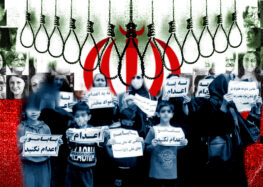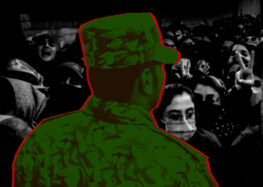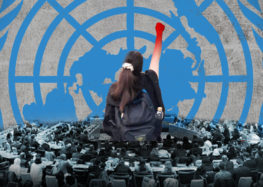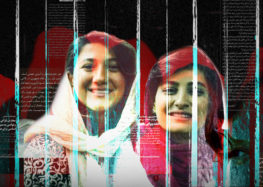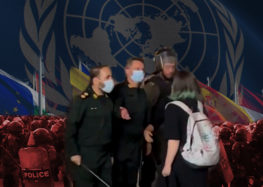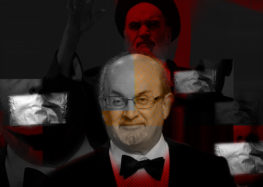Iran’s Intelligence Ministry Has Been Pressuring Families Of “Chain Murder” Victims to Be Silent for Decades
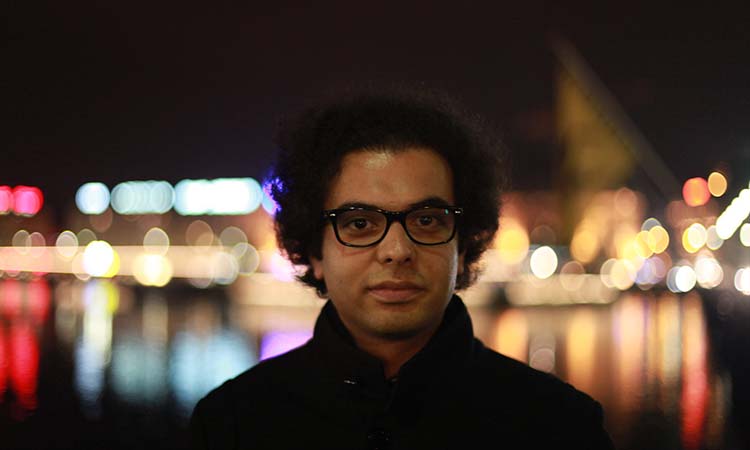 Sohrab Mokhtari is the son of writer Mohammad Mokhtari, who was murdered by agents of Iran’s Intelligence Ministry in 1998.
Sohrab Mokhtari is the son of writer Mohammad Mokhtari, who was murdered by agents of Iran’s Intelligence Ministry in 1998.
The families of intellectuals and dissidents murdered by agents of Iran’s Intelligence Ministry in the 1990s continue to be harassed by the state for attempting to honor their loved ones.
In an interview with the Center for Human Rights in Iran (CHRI) on December 11, 2017, Sohrab Mokhtari, whose father was killed in 1998 in what came to be known as the “chain murders,” said the Intelligence Ministry never stopped trying to intimidate his family into silence.
“In all these years, the families of the victims and their lawyers have been kept under pressure,” he said. “As you know, [Nasser Zarafshan] one of the lawyers of the victims was jailed for five years. Our other lawyers including Ms. [Shirin] Ebadi have come under a lot of pressure.”
He continued: “In fact, what is going on today is a continuation of the same mentality that existed when the chain murders took place. This case ties the Iranian security agencies to some truths that they believe should not be revealed. The facts are already partly known to all—that these crimes were committed by the security agencies themselves.”
Sohrab Mokhtari’s father, Mohammad Mokhtari, was a prominent secular author and the former secretary of the Iranian Writers Association (IWA) when agents of the Intelligence Ministry strangled him to death on December 3, 1998.
Sohrab Mokhtari spoke to CHRI after a memorial ceremony marking the 19th anniversary of the chain murders at his father’s gravesite at the Imamzadeh Taher Cemetery in the city of Karaj was blocked on December 8, 2017.
Those who tried to attend the ceremony were stopped at the entrance of the cemetery by security agents who claimed the event had been banned on order of a prosecutor.
Sohrab Mokhtari told CHRI that since 1999, requests by the families of the chain murder victims to hold commemoration events for their loved ones have been repeatedly rejected by state agencies.
“Every year, the IWA issues an announcement that its members will go to Imamzadeh Taher Cemetery and every year the security forces prevent them,” he said. “Last year they arrested Nasser Zarafshan and his son. This year they detained some IWA members and released them when the event was canceled. The security agents even removed the flowers from the graves of my father and [fellow chain murder victim] Jafar Pouyandeh.”
Sohrab Mokhtari continued: “The security officials always think that if a group of people gathers at a cemetery to honor the memory of their loved ones, the country’s security will be threatened. But the truth is that a bunch of writers and poets paying their respects to their colleagues who were viciously killed are not a threat to anyone’s security.”
In the interview with CHRI, Sohrab Mokhtari also criticized the prosecution of artist and human rights advocate Parastou Forouhar, the daughter of opposition politicians Dariush and Parvaneh Forouhar who were killed by Intelligence Ministry agents in 1998.
Forouhar, who returns to Tehran every year to hold a ceremony for her parents, appeared in court at Branch 28 of the Revolutionary Court on November 25, 2017, to face the charges of “propaganda against the state” and “insulting the sacred” brought by the Intelligence Ministry.
“It’s very painful to see Parastou being summoned by the same Revolutionary Court that prosecuted my father before he was murdered, and the plaintiff happens to be the Intelligence Ministry,” said Sohrab Mokhtari. “After 19 years, they are not only preventing us from holding a respectable ceremony for the victims but also prosecuting Parastou.”
Sohrab Mokhtari complained that the injustice has continued under President Hassan Rouhani, who came to power in 2013 promising a more open society.
“This government has not taken any steps to bring those responsible for the murders to justice or to re-open the investigation,” he said. “The same attitudes linger on. Of course, they have lifted the ban on my father’s books, which have been republished by Boutimar and Toos,” he said.
On December 8, the IWA said in a statement that banning this year’s commemoration ceremony for the chain murders victims was “a clear violation of citizens’ basic rights” and proof that the security establishment is “still afraid of any event marking this anniversary, even in a graveyard.”
Sima Sahebi, Mohammad Mokhtari’s wife, wrote on her Facebook on December 8 that the victims will never be silenced, not even in death.
“The names of Mohammad Mokhtari and Mohammad Jafar Pouyandeh still make the authorities tremble because these writers gave their honorable lives for unlimited and unconditional freedom of thought and expression,” she said.
“The ignorant rulers thought that by killing them, their ideas would be forgotten in Iran’s cultural and political history but their names and thoughts will live on forever,” she added.

